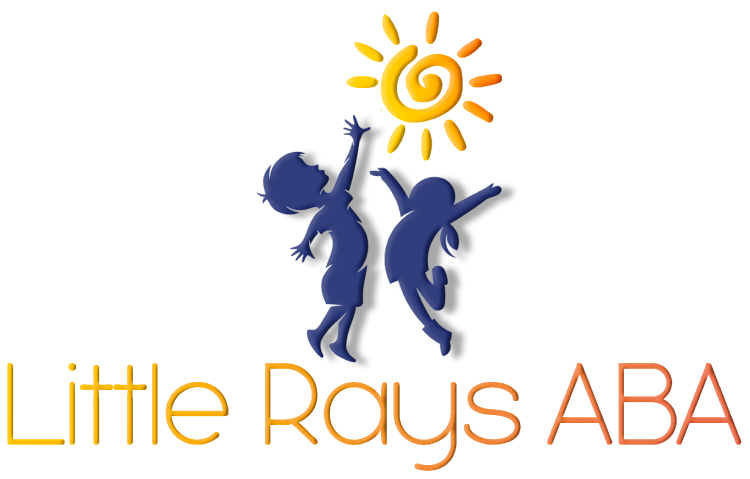
Do You Need an Autism Diagnosis for ABA?
Does your child need a formal autism diagnosis to start ABA therapy? The answer is not always clear. ABA therapy is often used for autism spectrum disorder, but it helps with more than just autism. It uses positive reinforcement to help your child with communication, building social skills, and daily life skills.
Whether or not you need a formal autism diagnosis for ABA therapy can depend on your insurance or what your family wants. Some places might ask for a formal diagnosis of autism, while other places might offer ABA for those who have other needs, too.
This is a question that can be different for every family. It helps to know your insurance rules and talk to your provider so you get what you need for your child.
Understanding ABA Therapy and Its Scope
Applied Behavior Analysis (ABA) therapy is important in the world of autism treatment. But this is not its only use. It can help with many different developmental challenges. The main goal of this therapy is to help people learn new skills and lower problem behaviors. This happens by looking at the environment around a person and using methods based on facts.
Many people think ABA therapy is only for those with autism spectrum disorder. The truth is, it also helps people facing other issues, including anxiety disorders. This can be things like ADHD, delays in development, and behavior struggles. ABA is used to help with social communication and to make daily living better. Its use goes way past what people first think when they hear about it. In this next section, we will look at the main ideas behind behavior analysis and how it can help those with autism spectrum and other needs.
Definition and Core Principles of ABA Therapy
ABA therapy works by shaping and improving behavior. It uses proven step-by-step methods that come from science. What really helps in ABA therapy is positive reinforcement. This helps make sure the right behaviors happen more often. It also makes learning feel good and helps people do more.
ABA therapy looks closely at each person to spot what sets off the challenging behaviors. The therapist then offers help that fits the person. By breaking big tasks into smaller steps, the person learns important life abilities. ABA does not only try to stop behaviors that are not wanted. It also builds up good behaviors that help in daily life.
For example, if a child finds social skills hard, ABA uses clear and direct rewards. This teaches the child to start a talk with someone. With goals you can measure and by checking progress over time, ABA therapists change their strategies as needed for each person. These basic rules of ABA work for many needs. ABA therapy is not only for autism treatment. It is helpful in many cases and shows again and again that it can help people build social skills.
How ABA Therapy Benefits Various Behavioral Conditions
ABA therapy helps people deal with many types of behavioral challenges. For example, people who have attention deficits often get help to stay focused and finish tasks. In the same way, ABA is used to manage anxiety. It teaches people ways to calm down and handle stressful moments.
Children who have developmental delays can also benefit from ABA. The therapy helps them move forward by working on their communication problems and the skills they need in daily life. Every plan is made to fit the person's own challenges.
ABA therapy does not just focus on the autism spectrum. It helps in a wide range of conditions. This includes oppositional defiant disorder, substance use disorder, and intellectual disabilities. Therapists use positive reinforcement to help people see improvements in their everyday life and raise their quality of life. Now, let’s talk about how an autism diagnosis can shape an ABA therapy plan.
The Role of an Autism Diagnosis in ABA Therapy
An autism diagnosis is very important in making plans for ABA therapy. It also helps people get ABA therapy more easily. Having an autism diagnosis often means that insurance coverage will be available. This support lets people use ABA therapy for autism spectrum needs. ABA’s use is not just for autism treatment, but a diagnosis can open doors to care that fits each person.
But, not having a formal diagnosis does not always stop someone from using ABA services. Experts can still use ABA therapy to help with other developmental and behavioral concerns. So, to get the most out of this therapy, it helps to know why an autism diagnosis is so important.
Why a Diagnosis Can Be Crucial for Therapy Planning
Getting an autism diagnosis can help make a good treatment plan based on careful checks from multiple sources of information. Therapists need this information to spot things like how a person talks, any repetitive behaviors, and how they are with other people. These things are key signs of autism spectrum disorder.
A diagnosis gives clear goals for therapy. It shows what to work on first, like help with feelings or ideas to cope better with daily life. For example, some children with non-verbal traits might need special AAC (alternative augmentative communication) tools. These tools are picked based on the diagnosis.
Also, an autism diagnosis makes sure the treatment fits with what research says works well. This makes it easier to use the best ways for good results with people on the autism spectrum. Let’s also look at how having a diagnosis affects things like insurance and the law.
Legal and Insurance Implications of an Autism Diagnosis
Securing a formal autism diagnosis simplifies the process of obtaining insurance coverage for ABA therapy. Most insurance companies require diagnostic reports, including the methodology and results, to approve therapy coverage. Without this documentation, families often face uphill challenges in funding therapy.
Legally, an autism diagnosis also opens doors to educational rights under the Individuals with Disabilities Education Act (IDEA). Children with diagnoses qualify for Individualized Education Programs (IEPs), offering tailored solutions for developmental and academic concerns.
| Legal and Insurance Considerations | Key Details |
|---|---|
| Insurance Coverage | Diagnosis required for therapy approval |
| Educational Accessibility | Enables access to IEPs and specialized resources |
| Financial Costs | Out-of-pocket expenses reduced with coverage |
Navigating ABA therapy without a diagnosis poses unique challenges. How can families access these services under different circumstances?
Accessing ABA Therapy Without an Autism Diagnosis
ABA therapy is not just for people who have an autism diagnosis. The therapist can help those with attention deficits, learning troubles, or other behavioral concerns too. This can happen even when there is no official diagnosis about development. But, families may need to look into different resources or new ways to get help in these situations.
If there is no diagnosis, it can be hard to get services at a low cost because of limits with insurance coverage. Many families may have to use their own money or find other funds, like scholarships. Now, let’s look at who can get aba therapy and talk about some great success stories.
Alternative Diagnostic Criteria That May Qualify for ABA
If someone does not have an autism diagnosis, they can still get ABA therapy if they show some clear behavioral or developmental delays. Big problems with talking, handling emotions, or getting along with others might let families get these interventions.
Therapists or teachers may say that ABA therapy is needed if they see developmental concerns at school or through other checks within the school district. They use tools much like the ones made for autism diagnosis such as checklists or looking at someone's development. This helps them see who can get ABA therapy.
Some early intervention services programs are more flexible. Because they look for a wider range of problems, they can help people get ABA services even if there is not an autism diagnosis. Real-life stories of people who tried this way show how helpful it can be for those with different needs.
Success Stories of ABA Without a Formal Autism Diagnosis
There have been big changes in what people can do when they use ABA therapy, even for people who do not have an autism diagnosis. Families often talk about how their kids now have better language skills, better ways to handle feelings, and stronger social skills.
One story is about a child who often had hard-to-handle outbursts. The child did not have an autism diagnosis. But by using the tools and ways from ABA therapy, those tough times got easier to manage. They did this with steps that use rewards and encouragement.
These stories show that ABA therapy can be used in many different ways. It help people handle behavioral challenges and make their quality of life better. Now, let’s talk about how families get financial help and what coverage is available for ABA therapy.
Insurance Coverage and ABA Therapy
Insurance is important because it helps pay for ABA therapy. Many times, insurance policies focus on helping people who be autistic. But in some cases, families can still get aba therapy even if they do not have a formal diagnosis. The cost, though, might be higher.
Families can also look for scholarships or ask if aba therapy providers have sliding-scale payment plans. It is good to know what insurance looks for. This helps families handle any problems they may face when trying to get aba services. You can read more about how insurers handle different aba therapy coverage below.
How Insurance Policies Treat ABA Therapy with/without a Diagnosis
Most insurance providers require an autism diagnosis to approve the necessity of ABA therapy coverage. Documents such as diagnostic reports and detailed assessments enable insurers to evaluate therapy necessity. Without proper certification, families may need alternative avenues, such as direct payments or scholarships.
| Coverage Status | Autism Diagnosis Needed | Challenges Without Diagnosis |
|---|---|---|
| Approved Coverage | Yes | Higher out-of-pocket expenses |
| Services Offered | Extensive autism-specific interventions | Limited alternative provisions |
Understanding policy nuances ensures families don’t miss potential aid opportunities. Tips for navigating challenges follow below.
Tips for Navigating Insurance Challenges
Getting insurance coverage can be hard if you do not have the right papers. It is important for families to look at policies closely so they know what is needed. You should call the provider to ask questions and get all the details clear.
Families who are not able to get usual insurance can look into other ways for help for eligible children. This can be things like funding extensions, money grants, or state programs for children’s needs. Talking to other parents who also deal with ABA services and insurance coverage can help. You learn from what they say.
It is good to take steps early and not wait. Doing things ahead of time helps you get ABA services more smoothly. Starting early also helps your child get the support they need when they need it most.
Early Intervention and ABA Therapy
Early intervention can help boost ABA results. It gives children a better chance to grow and learn during their early years. Even if there is no autism diagnosis yet, starting early can help fix problems right away.
Families should talk with their child's doctor and other child experts. This will help them learn about all the early intervention options out there. It is good to start early, because the sooner intervention begins, the better the therapy often works overall.
The Importance of Early Intervention in ABA
Scientific studies say that starting early is very important for a child’s success in aba therapy. When you use these methods sooner, there are more options. You can also change them to fit different goals for each child.
Kids who begin with aba therapy at a younger age often become more independent as teens. This is not just for kids with autism. When parents talk with their child’s doctor or the right expert, they can really get more out of the help they receive.
How Early Can ABA Therapy Begin Without a Diagnosis?
There are now many places in the community that offer therapy. This is helpful because it supports both kids who do or do not have a diagnosis. Places that help with development delays are starting to look at new ways to give care. The people who help children now make sure their services are useful for everyone and not limited by strict rules. They also promise to connect families with experts who can guide them and offer advice as the child grows. Because more help is available early and is made to fit each child, families can get the support they need, even if some problems don’t have clear answers yet. This new way is open to everyone, so help can reach more people, and families know they are not alone.
Consulting with ABA Professionals
Finding your way with aba therapy means more than just knowing the different techniques. It is important to work with knowledgeable people in aba therapy. These experts look closely at each child to see their unique developmental needs and to find out about their behavioral challenges. When families work with a dedicated team, they can set up a treatment plan that fits their specific goals. This plan helps with things like social skills, how children communicate, and other key parts needed for the best quality of life.
Talking to qualified ABA therapy providers, especially when searching for an ABA provider, is a great way to make sure children on the autism spectrum get good support. These people help families and their children have a better life by meeting the right developmental needs and working on areas that mean the most for each child. With the right team and treatment plan, kids can make progress in many areas of life.
Choosing the Right ABA Therapist
Choosing the right ABA therapist is important if you want good results from autism treatment. A dedicated team must understand the main ideas of applied behavior analysis. They also need to have worked with people who have different developmental disabilities. You should find people who shape their work to fit the person’s specific needs and goals. This can help make sure things like positive reinforcement and building social skills are used the right way. It’s also good to check their education and see what they know about the autism diagnostic process. This can help give your loved one the best place to grow.
When to Seek a Second Opinion
Getting a second opinion can help a lot when you are trying to understand autism diagnosis and treatment. Sometimes, what you see in your child’s behaviors or their developmental history might not match what the first doctor says. In cases like this, seeing a different professional can make things clearer. Different methods in these checks can lead to different results, which means your child’s treatment plan may change. Also, if the way an ABA therapist works does not meet your child’s specific needs or goals, it is good to look for other options. This helps you find the best match for behavior analysis and support.
Conclusion
If you’ve been searching online for the best ABA clinic near me, it’s likely because you’re looking for trusted support without the overwhelm. While a formal autism diagnosis is often required to begin insurance-covered services, many clinics are open to guiding families through the early steps. From helping with assessments to providing clear next steps, the right clinic can make the process feel less intimidating and more personal. Starting that conversation can be the first move toward real progress.
A dedicated team works with the ideas from applied behavior analysis. They create treatment plans to fit the specific needs of each person. When families start to use ABA therapy services, they get help to learn new skills and deal with behavioral challenges. This support can give people and their families a good way to reach better results over time.
In conclusion, while an autism diagnosis is not always required to start ABA therapy, having a clear understanding of your child's needs can help tailor the approach for better outcomes. At
Little Rays ABA, we specialize in providing personalized, effective ABA therapy for children, whether they have an official diagnosis or not. Our team is here to support your family every step of the way, offering expert guidance and evidence-based interventions.
Reach out to us today to learn how we can help your child thrive and develop to their full potential!
Frequently Asked Questions
Is an autism diagnosis mandatory for initiating ABA therapy?
While you do not have to get an autism diagnosis to start ABA therapy, it can really help make the treatment better. Many people who work in this area say you should get a formal diagnosis so they can plan the best care and get better results. It is important to really know what each person needs to help them the most.
What is Applied Behavior Analysis (ABA) and how is it used with individuals on the autism spectrum?
Applied behavior analysis, also called ABA, is a way to help people on the autism spectrum. It uses different techniques, including positive reinforcement strategies, to help improve certain actions and behaviors. ABA puts a lot of focus on using rewards to teach new skills, help with behavior, and improve social interactions. This makes it a helpful tool for those who have autism.
Can you access ABA therapy without a formal autism diagnosis?
Yes, you can get aba therapy even if you do not have a formal autism diagnosis. Many places that offer aba therapy will work with people who have behavioral challenges or delays in development. You do not always need to have a diagnosis first. It is a good idea to talk with a professional about your needs. They can help you find the best options for you.
Is an autism diagnosis necessary to receive ABA therapy?
An autism diagnosis is generally required to receive Applied Behavior Analysis (ABA) therapy. This diagnosis helps practitioners tailor interventions to the individual's needs. However, some programs may offer services without a formal diagnosis, emphasizing early intervention and support for developmental challenges. Obtaining a diagnosis is often the first step toward accessing those services. Always consult a professional for guidance.
Is an autism diagnosis necessary to receive ABA therapy?
No, an autism diagnosis is not strictly necessary to receive Applied Behavior Analysis (ABA) therapy. While having a formal diagnosis can facilitate access to services and insurance coverage, other developmental concerns may also warrant ABA intervention. Consult with a qualified professional to determine the most appropriate approach for your situation.
Related Posts





